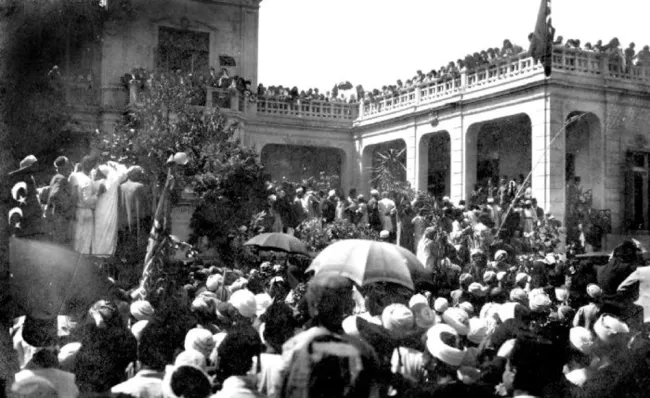
Egyptian Workarounds| Outsmart, adapt, survive, repeat
If we were to choose a core value around which Egyptians’ lives have turned across history, it would be “tahayyul”; the art of outsmarting power and surviving through workarounds.
This does not mean accepting or embracing what is wrong. It is a form of indirect resistance, one that relies on quick intelligence and a long historical repertoire of low-risk confrontation with the steady misuse of power in a country that has endured every variety of foreign occupation and domestic exploitation.
Through such workarounds, Egyptians have kept their country alive and kept themselves going, even during severe hardship.
In practice, these culturally rooted workarounds appear in nearly every sphere of life. There are political workarounds, the perpetual search for escape routes or the effort to turn crises into opportunities, and legal workarounds that shield people from laws crafted by those who dominate wealth and decision-making.
It also extends to the subtle instruments developed by Islamic jurisprudence and Christian thought as they engaged people’s daily realities, seeking ways to navigate crises without burdening the conscience or straying beyond what is permissible.
None of this implies Egyptians have shunned direct resistance. When necessity demanded it, or when grave events pushed them, they confronted power head-on.
They have taken up arms against occupiers and against oppressive, predatory authorities. They have also borne arms to advance the ideas of one faction or sect over others.
They have also practiced many forms of civil resistance, beginning with complaints and ending in revolutions and wars.
Yet the most enduring method has been resistance through workarounds—a practice that never vanished, even when more direct forms of resistance surged.
A history of workarounds
Around 25,000 years ago, the inhabitants of the grasslands that are now the Western Desert devised a workaround for a major climatic shift, as rainfall dwindled and finally ceased.
They searched for water and new land until they reached the Nile, whose course then ran through dense thickets. With stone sickles they cleared those forests until the fertile ground opened before them; an account preserved by Manetho in his “Aegyptiaca,” a mixture of myth and early Egyptian history.
Ancient Egyptians then outsmarted the Nile itself. They observed its rhythms, its swelling and its retreat, and used them to tame the flood, endure the drought, and set the seasons for planting and harvest.
Egyptians also worked around poverty by inventing inexpensive foods, beginning with mish cheese, whose endurance seems to defy time itself. They followed it with a variety of cheap, nourishing, and flavorful dishes, from stewed fava beans and bessara to koshari and more.
They were hardly alone in this, nearly every people has devised such culinary workarounds. But the Egyptians were among the earliest to do so.
In ancient times too, when wood was scarce and costly, they worked around the shortage by hanging curtains in place of doors. Even the houses of the wealthy relied on them, curtains pieced together from leftover fabrics or burlap, often embroidered with silk.
Arts of protest
One striking example comes from the medieval period, when the Fatimids imposed heavy taxes and tried to force Egyptians to adopt the Ubaydi Shiite doctrine. They even required households to inscribe Fatimid political and religious slogans on their walls and doors.
In response, Egyptians coined the phrase “Ana Ahtagg/I protest.” When it began to spread, the Fatimids declared that anyone who wrote or uttered it would face flogging, imprisonment, and fines.
Egyptians immediately worked around this repression by shortening the phrase to a single word: “Aḥt.”
When the Fatimids realized the ruse, they extended the same punishments to anyone who used the shortened word. So people altered it again, to “Aḥa,” and spread it across the land, with some insisting it was merely a meaningless colloquial exclamation, devoid of political intent.
In time, the Fatimids grew weary of chasing it, accepted it at face value, and let it run freely on people’s tongues—down to our own time, where it survives as a withering expression of disapproval.
Another often-repeated example among intellectuals today concerns Saad Zaghloul, the leader of the national movement after the 1919 Revolution.
After the British occupation exiled him, even uttering his name aroused suspicion and risked persecution. So Egyptians devised a song “Ya balaḥ Zaghloul… ya ḥelwah ya balaḥ,” meaning “Oh Zaghloul dates, oh sweet dates,” which sounded, on the surface, like the calls of date sellers hawking their wares.
But once the song spread everywhere, and famous singers began performing it, the British could do little except look the other way.
During the 1919 Revolution, Egyptians worked around the British occupation forces’ attempt to block all roads leading to Al-Azhar Square. They forged new routes unknown to the soldiers, including narrow alleyways in Al-Shanwani Street that only Azharis knew.
Some climbed across rooftops, moving from one house to the next until they reached the square. At one point, they even broke through a wall in a house beside Al-Azhar so people could enter the mosque through it, and in the end they reached their goal.
Legal loopholes
When political authorities issue laws that most Egyptians believe do not serve their interests, people rarely confront them directly. Instead, they work around them with an endless range of devices, often turning to lawyers adept at spotting gaps in the law, especially procedural ones.
For generations, Egyptians worked around state confiscations by declaring their properties as religious endowments, ensuring a steady income for their relatives.
When Gamal Abdel Nasser nationalized agricultural land, some landowners redistributed their holdings to trusted relatives and associates, having them sign secret promissory notes for the land’s value.
When Nasser’s government halted the import of European herring as part of an austerity program, Egyptians turned to a quick alternative. Under commodity-exchange agreements in the early 1970s, they imported Russian mackerel and transformed it into smoked herring with generous amounts of turmeric.
To buyers, it looked like a different variety of herring altogether, and soon carts loaded with it were roaming through popular markets.
This sort of fraud—workaround though it is—is still less harmful than other practices: the chemical additives mixed into stewed fava beans, Egypt’s staple dish, to speed up cooking, or the black dye poured over unripe olives so they take on the deep black or aubergine hue that fetches a higher price.
Contemporary workarounds
To work around property taxes, the vast majority of owners do not register their buildings, relying instead on court declarations to secure their rights. As a result, some official statistics suggest that around 90% of Egypt’s properties remain unregistered.
Women who receive pensions after their husbands’ deaths often work around the system through "urfi", or informal marriages. Such arrangements allow them to sustain married life without forfeiting their pensions.
Some husbands, pressed by economic hardship, have resorted to divorcing their wives who, if unmarried, may qualify for pensions from a deceased parent, then reconnecting with them through urfi marriage. The practice has grown so widespread that sham divorce has become a recognizable social phenomenon of our time.
Egyptians have also devised ways around electronic fingerprint systems that track arrival and departure times in state institutions and private companies. Some deliberately damage the devices; others mix liquid silicone with wax and modeling clay to clone fingerprints, which employees then exchange among themselves.
When the government imposed drug tests on employees, truck and minibus drivers, and candidates for parliament, Egyptians quickly devised their own workarounds. Some took birth control pills; others drank mixtures of honey, milk, and vinegar for at least 10 days, or even swallowed a bit of kerosene just before the test to ensure a negative result.
Workarounds against rising prices
As essential goods became prohibitively expensive, the poor began seeking cheaper, lower-quality, or second-hand alternatives. Entire markets emerged for selling leftover cooked food from hotels, banquets, and wealthy homes.
To cope with soaring meat prices, neighbors often pool resources to buy a slaughtered animal, each taking a share in proportion to what they contributed towards a calf, sheep, or goat.
Egyptians work around the high cost of car parts by salvaging components from old cars sold off by their owners or from vehicles that have been wrecked in serious accidents. They have even built a market for this in Craftsmen’s City (Madinat El-Hirafiyyin), now a destination for car owners seeking cheaper alternatives.
Egyptians have also worked around congestion and rising transport costs by turning to bicycles, motorbikes, three-wheel cargo tricycles, and tuk-tuks. Donkey carts remain common in popular—and especially distant—neighborhoods, while small trucks once meant for carrying produce from wholesale markets now double as transport for people.
People flock to markets selling second-hand clothing. They visit cobblers to patch their shoes, tailors to mend worn-out clothes, and darners to close holes and tears.
Vendors roam cafés selling used razor blades purchased from garbage collectors—blades that are then cleaned, repackaged, and resold.
When satellite channels monopolized the rights to broadcast international and continental football matches and restricted them to paid subscribers, Egyptians—especially in popular neighborhoods—responded by creating informal “cable” networks that spread through every street.
One satellite shop would keep a single receiver and a distribution unit from which dozens of cables ran into nearby homes. Each cable carried a small fee that let viewers follow the tournament.
Others turned to shared subscriptions, jointly purchased by several families for privacy and to avoid legal trouble over unauthorized connections. Technicians in satellite-equipment shops soon developed ways to decrypt scrambled channels—and eventually produced devices that could do so through the internet.
All of this is only the tip of the iceberg. Most of the examples mentioned here are recent and contemporary.
If we were to trace such practices through earlier eras, we would find hundreds more, each confirming that workarounds are a central means by which Egyptians confront hardships, resist the tyranny of power, and navigate the state’s own workarounds, which we will examine in the next article.
Published opinions reflect the views of its authors, not necessarily those of Al Manassa.

